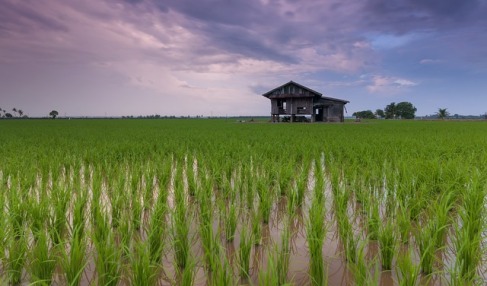It’s that time of the week, the food shop. You’ve got your canvas bags at the ready but how can you really shop ethically when our food is riddled with palm oil and other unethically sourced ingredients. These apps are designed to help us live a more sustainable life, reducing our impact on the environment whilst we shop and go about our day-to-day lives.
- Giki – Sustainable Shopping App
By scanning barcodes, Giki provides a wealth of information regarding the sustainability of your food shop. Once scanning the item, you’re presented with a badge rating that ranks the product based on various factors such as health, animal welfare and whether ingredients have been responsibly sourced. The app even suggests more ethical and healthy alternatives.
- Too Good To Go – The fighting food waste app
From YoSushi to independent bakeries, this app connects customers with food businesses who want to reduce their surplus waste at the end of the day. The food you buy is pre-packed by the restaurant and sometimes you can’t choose what you buy. However, food is priced with a generous discount and provides an ethical and cheap alternative to getting a takeaway. I am based in London so options are in good supply however for those who live outside of the main cities, I’m not sure whether the use of this service is as widespread.
- Ecosia – The Eco-Conscious Web Browser
Think of a green Google. This is Ecosia. The creators of this carbon-neutral search engine promise to plant trees for every web search completed on their browsers. They provide tree planting receipts and operate a transparent financial policy so users can see for themselves that trees are being planted. You can monitor how many trees you have planted along with keeping up to date with the company’s latest global projects. It’s a really easy way to give back to the planet whilst completing everyday tasks.
planting receipts and operate a transparent financial policy so users can see for themselves that trees are being planted. You can monitor how many trees you have planted along with keeping up to date with the company’s latest global projects. It’s a really easy way to give back to the planet whilst completing everyday tasks.
- reGAIN and Not My Style – Ethical Fashion Apps
Both of these apps encourage an ethical approach to retail therapy. reGain accepts your old clothing donations and in return, you are rewarded with discount coupons for various online and high-street retailers. It is very similar to taking your clothes to the charity shop however, you are given coupons as payment for your donation. I do feel somewhat conflicted with this approach as essentially the discounts encourage the user to go out and buy more goods and in the long run may not reduce the carbon footprint of the consumer.Not My Style is fighting the repercussions of ‘fast fashion’. The app informs the buyer of how ethical brands are in terms of the treatment of their workers and their environmental impact. From here, the consumer can make an informed decision before making their purchase. For more insight into ‘fast fashion’, check out my previous post, What Could You Live Without?
payment for your donation. I do feel somewhat conflicted with this approach as essentially the discounts encourage the user to go out and buy more goods and in the long run may not reduce the carbon footprint of the consumer.Not My Style is fighting the repercussions of ‘fast fashion’. The app informs the buyer of how ethical brands are in terms of the treatment of their workers and their environmental impact. From here, the consumer can make an informed decision before making their purchase. For more insight into ‘fast fashion’, check out my previous post, What Could You Live Without? - Tap – The water bottle refill app
This app provides the user with a map of the nearest water refill points. It encourages using your reusable bottle as opposed to buying plastic bottled water by suggesting local businesses that will re-fill your water for free. I like this app because it encourages a community feel in the bid to reduce plastic waste. Not to mention the potential for small businesses to gain exposure with a wider audience.
refill points. It encourages using your reusable bottle as opposed to buying plastic bottled water by suggesting local businesses that will re-fill your water for free. I like this app because it encourages a community feel in the bid to reduce plastic waste. Not to mention the potential for small businesses to gain exposure with a wider audience.
Of all these apps, I feel that Ecosia and Giki will be the ones that I use the most. It’s useful to have tools at your disposal to help us make better-informed decisions about the food we eat, the clothes we wear and our general lifestyle. Hopefully, by increasing public awareness, this might put pressure on brands to assume a more ethical approach while consumers avoid products that are irresponsibly produced.



